The Pianist: StudioCanal Collection
Even before making this Oscar-nominated film, Roman Polanski was considered one of the greatest directors currently working and anyone who is familiar with his upbringing will understand why he was drawn to this project, based on the book by Wladyslaw Szpilman. It follows Szpilman, a Jewish pianist living and working in Warsaw who lives through the German invasion of Poland, the declaration of war on Hitler's Germany by Britain and France and their lack of action which led to the country being entirely occupied and a large area of the capital being walled up for the nearly 500,000 Jews. As time goes on, living conditions get worse and worse and he narrowly avoids the train to Treblinka and is forced to rely on members of the underground and resistance for help before being stranded, starving in a ruined house at which point a German officer finds him.
As a young boy, Roman Polanski escaped the Kraków ghetto and had to live on his wits in the Polish countryside based on the kindness of strangers (changing his name and passing himself off as a Catholic) and his own determination to survive. Unbeknownst to him, his mother died in Auschwitz but his father survived imprisonment in the Malthusian-Gusen concentration camp and they weren't reunited until years after the war. I that the initial appeal for Polanski would have been the portrayal of ghetto life and showing the increasingly anti-Semitic attitude of the German state as, though he was alive at the time, he was apparently too young to recognise the extent of the seismic change in government policy.
The film begins in 1939 with the Szpilman family listening to the radio and hearing a BBC announcement that the British government has declared war on Germany and that the French will join shortly. Released, they think that Poland is saved but it isn't long until they realise that this was just false hope as jackbooted soldiers march down the street and the newspaper carries the announcement that an area of Warsaw will be created specifically for Jews to live. As they live outside the area, they realise that they will have to move and secret away thousands of zlotys as one of the announcements has said that Jewish families are to be limited to 2000 zlotys, and they have just over 3000 too many.
Although there aren't a great deal of captions to tell you exactly what that it is, the ones that are there are for important dates and you can guess about what year it is and time of year by the weather. This is a film that covers six years in the life of Wladyslaw Szpilman from his entry into the Warsaw ghetto, escape and continuing his career playing on Polish radio. As this is based on Szpilman's own book, you can safely assume that the events portrayed are as accurate as they could be and there are no scenes where I thought "that wouldn't happen" or "there is no way that someone could do that" as the brutality and mistreatment of the Jews is well documented and, as Szpilman lived to write his autobiography, you are fairly certain that he survives the film.
A film like this that is very close to biopic territory needs a special central performance by the actor portraying the main character and Adrien Brody does a tremendous job with his angular features and slim build enabling him to look like a piano player with long fingers and lose and then gain weight as events dictate. There are several scenes where he looks so gaunt and malnourished that I actually wondered if his health suffered.
There are a multitude of great supporting actors such as Maureen Lipman who plays Wladyslaw's mother, Frank Finlay as his father and Emilia Fox as Dorota, a German cellist who is with Wladyslaw at the beginning of the film and appears later on as her husband is a member of the resistance. There is also a brief appearance by Thomas Kretschmann near the end as a German officer who discovers Szpilman's hiding place but I won't disclose what happens then.
I imagine that similarities will be drawn between this and Schindler's List and I have to say I prefer Polanski's film as it seems much better paced and far more nuanced in its portrayal of the Jewish reaction to the German aggression. Unlike in Spielberg's film where the Jews in the camp basically accepted their fate (and ignored the many who fought against the guards, dying for their one piece of resistance), this shows the extent of the Polish resistance, both Jewish and Christian, both inside the ghetto and outside in Warsaw. The film features a little bit of the Warsaw Ghetto Uprising from 1943 in which armed members of the resistance inside the ghetto took the fight to the Germans, killing many soldiers in what was essentially a suicide mission.
The Pianist is an incredibly affecting and moving film with a stunning central performance by Adrien Brody and a film that is an important document of 20th century European history. It is the sort of film that will live with you long after the end credits have finished rolling and one you'll find yourself revisiting time and time again.
The Disc
Extra Features
A Story of Survival: Behind the Scenes of the Pianist has been released before and is a fascinating 40 minute which shows how personal this film whilst Polanski and how much of an impact he had on such things as the costumes, dialogue and certain scenarios which happened to him as a child in Kraków. He remembers a woman being shot through the head to asking a German officer a question, his father being slapped to the ground for not walking in the gutter and being told not to run when escaping from the ghetto -- all of which appear in the film.
There are three interviews which are new to the UK, one with screenwriter Ronald Harwood (20:45), another with Andrzej Szpilman (29:49) and one with Daniel Szpilman (2:28). Daniel Szpilman, the grandson of Wladyslaw, is the most reticent to speak so his contribution is only short but Ronald Harwood and Andrzej Szpilman are all too willing to talk about their particular contributions to the film and what, particularly in the case of Andrzej, they knew about Wladyslaw Szpilman. The longer two interviews are the most interesting and revealing as more information is divulged but the one with Daniel Szpilman is still worth watching.
The final extra feature on the disc is the theatrical trailer but the set also comes with a brilliant essay by film journalist Anwar Brett which is well worth a read.
The Picture
This is a film that has always looked extremely good thanks to Polanski's keen eye and his reputation as a great visual director will certainly only be enhanced by this film. The palette is extremely muted to the point of occasionally being on the verge of monochrome and it would be extremely strange if the film was full of vivid and vibrant colours and bright costumes. There are some scenes, particularly before the Nazi clampdown and during the ghetto sequences when the Jews pass through a 'Polish' area of Warsaw when nothing has changed in the several years that have passed with people continuing to wear the same clothes, buy the plentiful bread and live as they did before the occupation.
Later in the film there are a few extraordinary shots of a bombed out Warsaw which is just devastation as far as the eye can see and although I knew that much of it was CGI, I really couldn't tell where the real buildings ended and the virtual destruction began.
I imagine that Polanski has a lot to offer in terms of advising the costumes, set decoration and production design departments as he was there at the time and could remember what things looked like, exactly what people wore and what the wallpaper was like. That sort of thing would be welcome from an outside adviser, let alone the director.
The Sound
Much of The Pianist is entirely occupied with dialogue; conversations between the Szpilman family, between Wladyslaw and others inside the ghetto and then fleeting conversations between him and members of the resistance who shelter him in various safe houses in the city. As such, most of the DTS-HD Master Audio 5.1 track is limited to the centre speaker and front surrounds with only nuanced and atmospheric sounds coming from the rear surrounds but these really do come alive when there is a firefight, explosions and especially when a tank begins destroying the row of terraced houses in which Wladyslaw is sheltering.
Aside from the piano music that Wladyslaw plays, there is a haunting score that fades in and out throughout the film and is an extremely evocative piece of music. Wojciech Kilar is extremely prolific composer and worked with Polanski once before on The Ninth Gate.
Final Thoughts
The Pianist is a terrific film and a testament to Polanski's skill as a filmmaker but he was able to exorcise some Demons by revisiting one of the darker periods in his life and bring his experiences to the big screen whilst maintaining enough of an emotional gap to prevent the film becoming over-sentimental and on the verge of becoming a polemic.
This is such a good package that even if you own the film on DVD, it is worth upgrading to this fantastic release that stands up with the best of the films in the StudioCanal Collection, some of which are universally recognised as all-time greats.
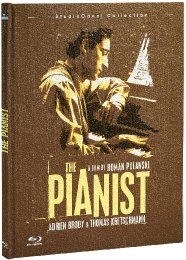
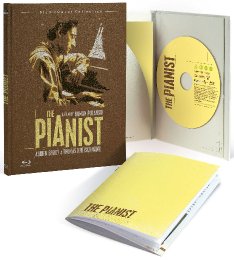
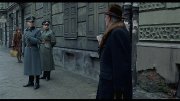
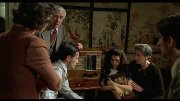



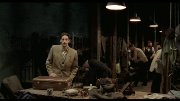
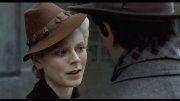
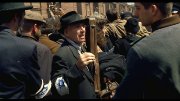

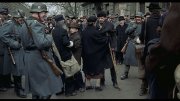
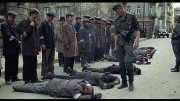

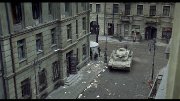
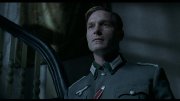

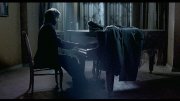
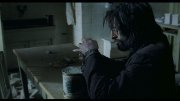







































Your Opinions and Comments
Be the first to post a comment!